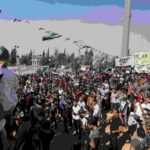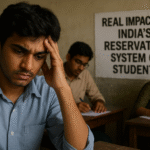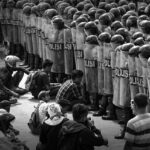Key Highlights:
- National identity plays a crucial role in unifying diverse populations under a shared set of values and historical heritage.
- Democracies leverage national identity to foster civic responsibility, participation, and cohesion among citizens.
- Cultural preservation efforts, education systems, and public commemorations are vital in maintaining and nurturing national identity in democratic societies.
Introduction
In the intricate tapestry of democracy, national identity serves as a cohesive force that binds individuals to a shared set of cultural, historical, and ideological values. This identity is pivotal not only in fostering a sense of belonging and community among citizens but also in underpinning the democratic principles of equality, participation, and patriotism. As nations navigate the challenges of globalization and cultural diversification, the role of national identity in preserving heritage and enhancing democratic governance becomes increasingly significant.
National Identity and Democratic Cohesion
- Foundation of Democratic Values
National identity helps instill and reinforce the core values that support democratic governance, such as liberty, justice, and equality. It provides a common ground for citizens to understand and engage with these values, shaping their participation in democratic processes. The shared sense of identity encourages individuals to contribute positively to the community, uphold the law, and partake in civic duties. - Unity in Diversity
In diverse societies, national identity acts as a unifying element that transcends ethnic, religious, and cultural differences. It promotes inclusivity and social solidarity by highlighting shared heritage and collective goals. This unity is crucial for maintaining stability and preventing the fractures that can arise from sectarianism or regionalism in democratic settings.
Preserving National Identity through Cultural and Educational Initiatives
- Cultural Preservation Programs
Governments and cultural organizations often initiate programs to preserve and promote national heritage, such as restoring historical sites, supporting traditional arts, and celebrating national festivals. These efforts not only enrich the cultural landscape but also reinforce a sense of pride and continuity among the population. - Education and National Curriculum
Education systems play a vital role in cultivating national identity from a young age. Curricula are designed to include national history, symbols, and values, which help students understand and appreciate their cultural heritage. Civic education teaches the rights and responsibilities of citizens, fostering a generation that is well-versed in the principles and practices of democracy.
Challenges and Future Directions
While national identity is fundamental to democracy, it also faces challenges that require careful navigation:
- Avoiding Nationalism Extremes
It is crucial for democracies to balance national pride with openness and tolerance. Excessive nationalism can lead to xenophobia and intolerance, undermining democratic inclusivity. Policies should aim to celebrate national identity while promoting respect for global diversity and international cooperation. - Adapting to Globalization
As global interactions increase, maintaining a distinct national identity while embracing global influences is a balancing act. Democracies must find ways to integrate international perspectives without diminishing their unique cultural heritage.
Conclusion
The preservation of national identity is essential for the health and vibrancy of democracies. It not only fosters a shared sense of belonging and purpose among citizens but also supports the democratic values of participation, equality, and civic responsibility. As societies continue to evolve, the challenge lies in nurturing a national identity that respects diversity and adapts to changing global dynamics, ensuring that it remains a source of unity and strength in democratic governance. By actively engaging in cultural preservation and education, nations can ensure that their heritage endures as a cornerstone of democratic society.







